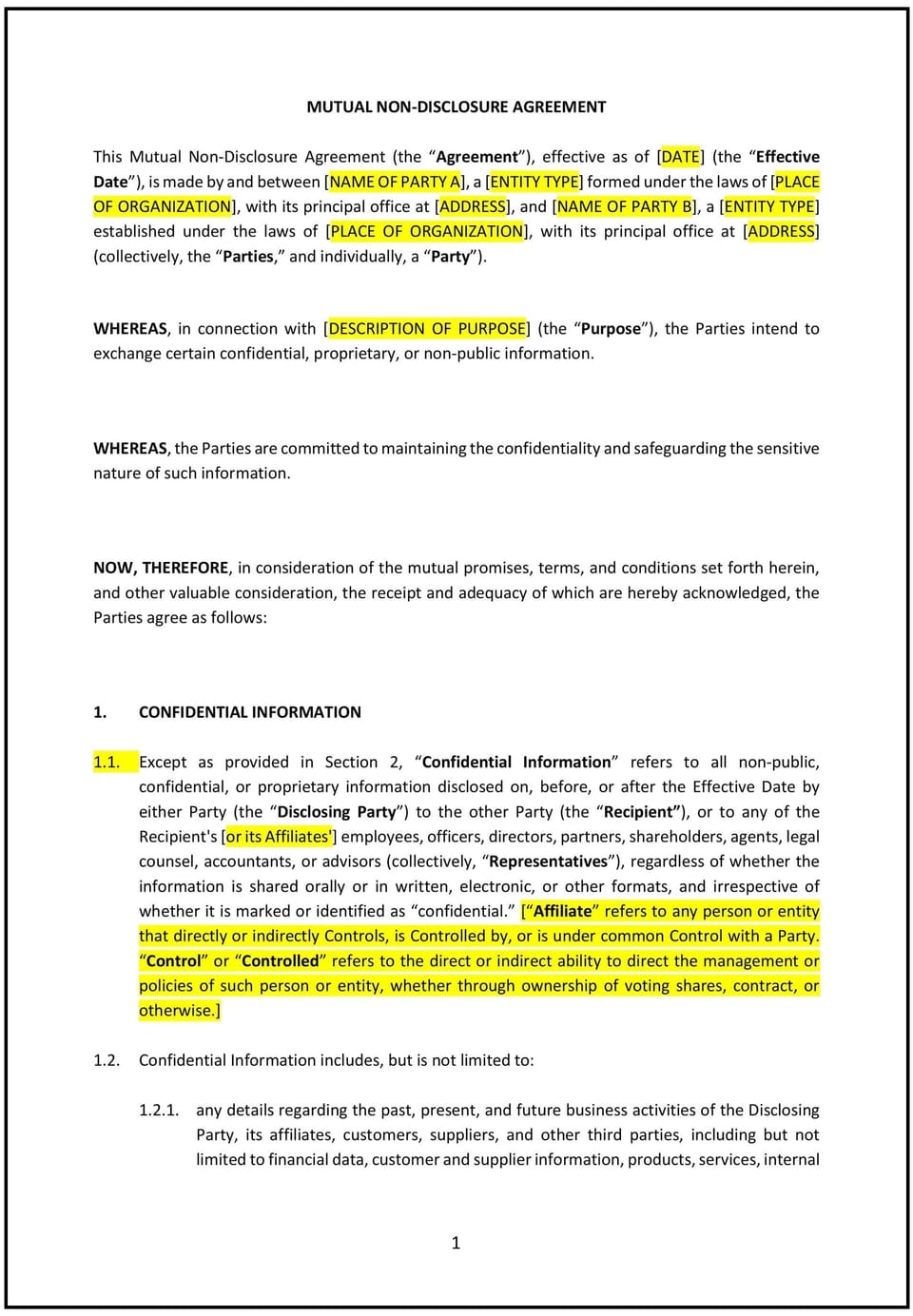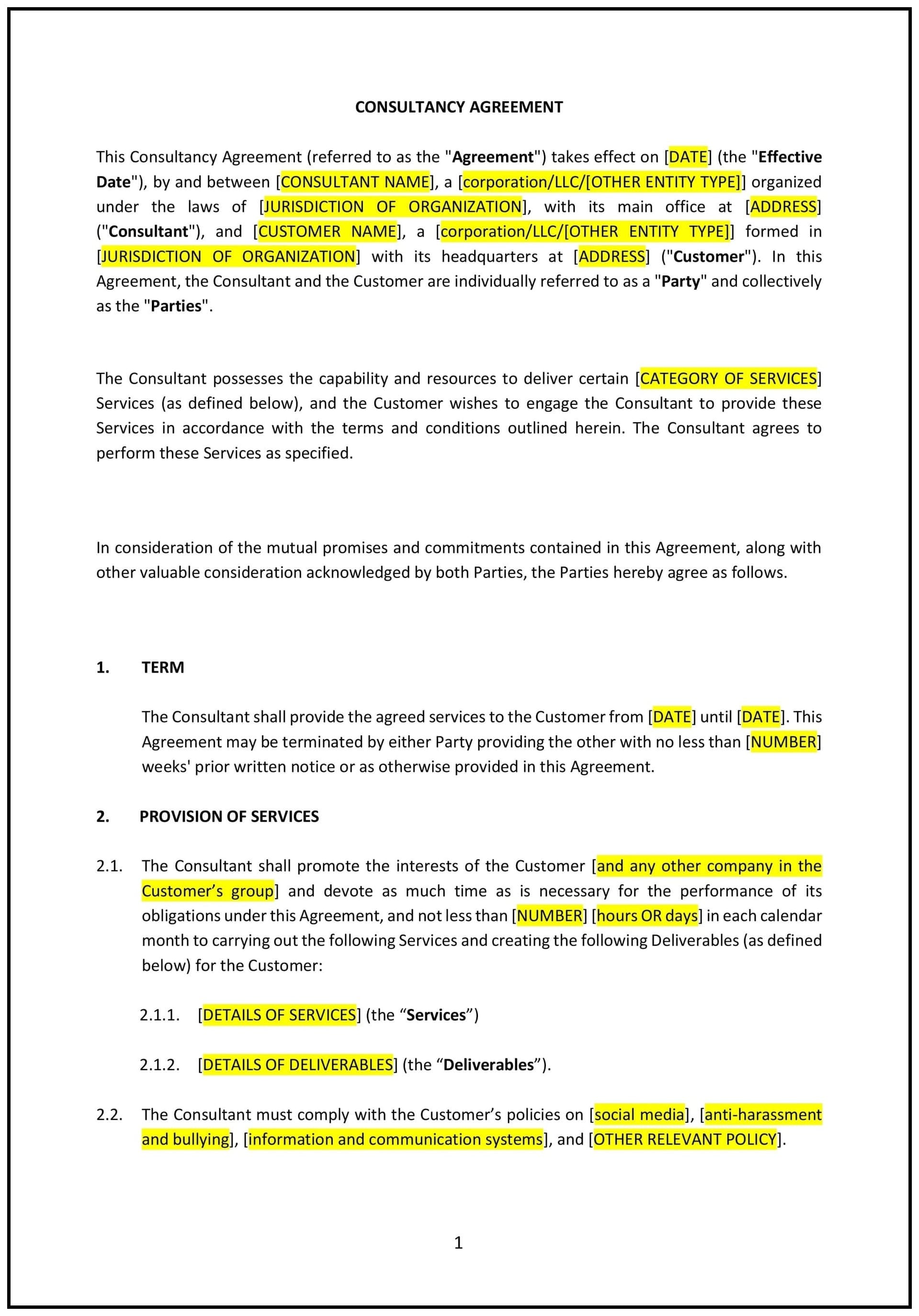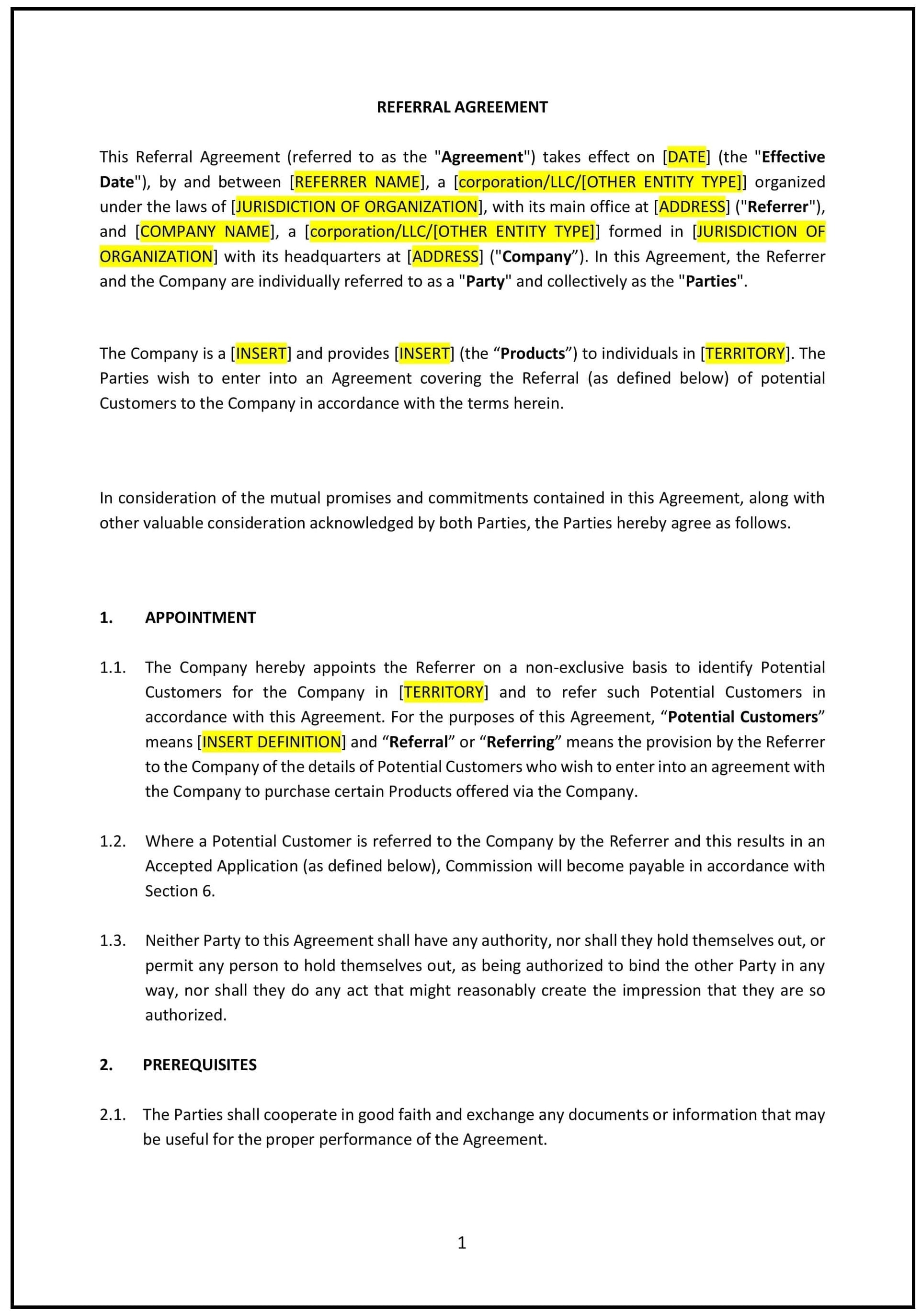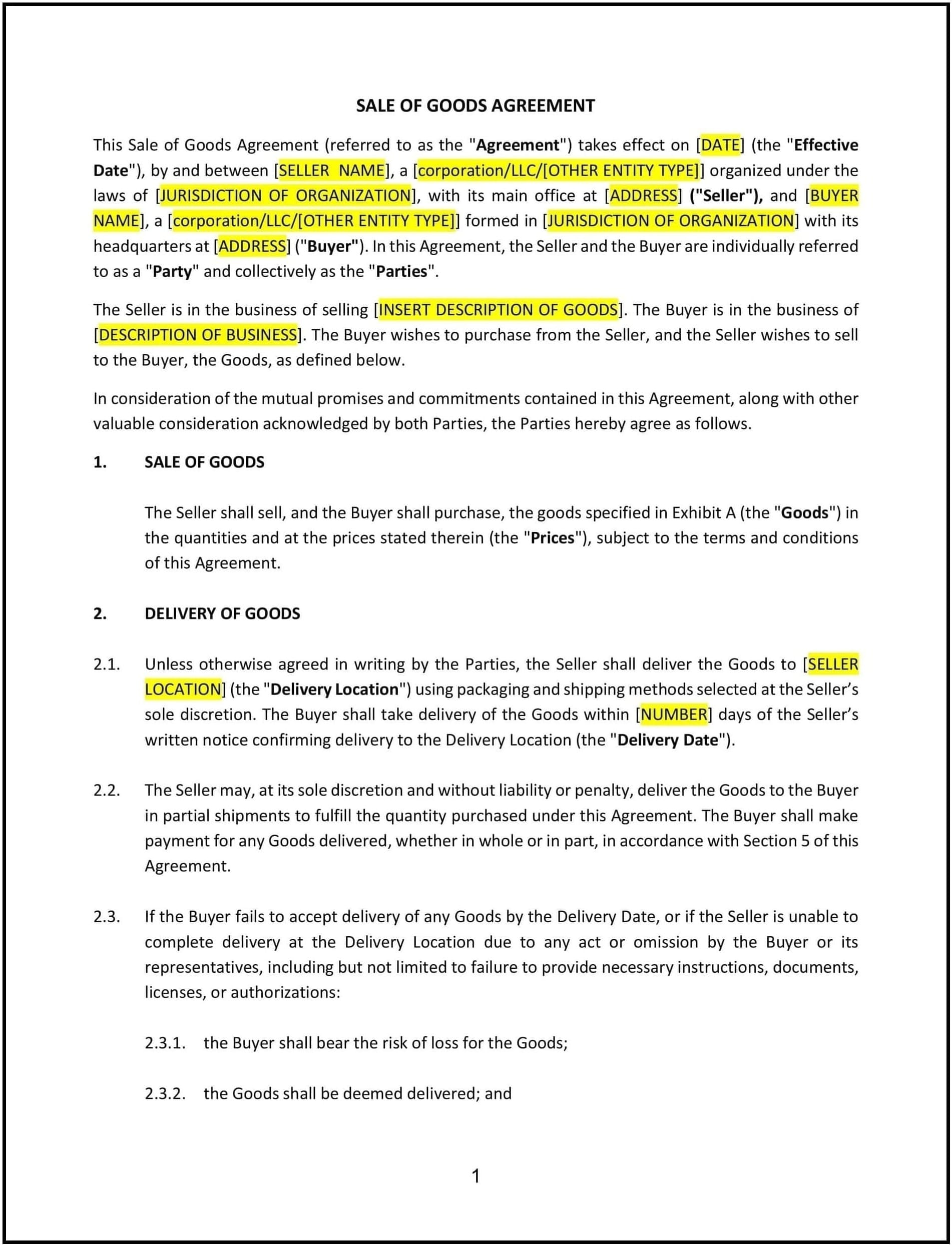Non-Disclosure Agreement (Mutual) (Arizona): Free template

Non-Disclosure Agreement (Mutual) (Arizona)
A Non-Disclosure Agreement (Mutual) in Arizona is a contract that ensures both parties keep shared confidential information private. This agreement is commonly used in business negotiations, partnerships, and collaborations where sensitive information, such as trade secrets, financial data, or proprietary technology, is exchanged between parties.
Businesses in Arizona use this agreement to protect valuable business information and maintain trust between parties. It helps prevent unauthorized disclosures and provides legal recourse if confidential information is misused.
Tips for drafting and maintaining a Non-Disclosure Agreement (Mutual) in Arizona
- Clearly define what constitutes confidential information, including exclusions such as publicly available data or information independently developed, to avoid ambiguity and ensure enforceability under Arizona law.
- Specify the purpose for which the confidential information can be used, ensuring both parties understand the scope of permitted disclosure and use.
- Include Arizona-specific considerations, such as compliance with data privacy laws (e.g., Arizona Revised Statutes § 44-7501) if sensitive personal or financial information is involved.
- Set a reasonable duration for confidentiality obligations, as Arizona courts may invalidate agreements with indefinite or excessively long terms.
- Ensure mutual protection by clearly outlining the rights and responsibilities of both parties, avoiding language that favors one side disproportionately.
- Add provisions for returning or destroying confidential materials upon termination of the agreement to safeguard sensitive information.
- Include remedies for breach, such as injunctive relief or monetary damages, to provide recourse in case of unauthorized disclosure.
- Specify that Arizona law governs the agreement and designate Arizona courts as the jurisdiction for disputes to streamline enforcement.
- Address exceptions to confidentiality, such as legally required disclosures, to align with Arizona’s legal standards and prevent conflicts.
- Use clear and concise language to ensure the agreement is easy to understand and enforceable, avoiding overly technical or vague terms that could lead to misinterpretation.
Frequently asked questions (FAQs)
Q: What should Arizona businesses include in a Non-Disclosure Agreement (Mutual)?
A: Businesses should include definitions of confidential information, exclusions, duration, permitted disclosures, and consequences for breaches.
Q: How does a Non-Disclosure Agreement (Mutual) benefit businesses in Arizona?
A: It ensures that both parties’ confidential information remains protected, reducing the risk of unauthorized disclosure.
Q: Can a Non-Disclosure Agreement (Mutual) include non-compete clauses in Arizona?
A: Yes, but Arizona has strict rules on non-compete enforceability, requiring them to be reasonable in scope, duration, and geographic reach.
Q: How long should a Non-Disclosure Agreement (Mutual) last in Arizona?
A: The duration varies but typically ranges from two to five years, with indefinite protection for trade secrets.
Q: Are verbal NDAs enforceable in Arizona?
A: While verbal agreements can be binding in some cases, a written NDA provides stronger legal protection and clarity for both parties.
This article contains general legal information and does not contain legal advice. Cobrief is not a law firm or a substitute for an attorney or law firm. The law is complex and changes often. For legal advice, please ask a lawyer.


